In this article
Popular searches
Log into your account
Travel and Insurance
Posting

Saving on your European city adventures
Planning a European city break doesn't have to be expensive. By doing some research and preparation, you can explore Europe's vibrant cities on a budget. Here are some tips to help you save money both when planning your trip and while you're enjoying your destination.
Planning your trip
-
Find out where’s cheap to visit
Although flights to some destinations may be cheap, you may find the places themselves expensive on arrival, which defeats the object of taking a budget trip.
A good place to check is the annual Post Office city costs barometer. It pulls together the cost of everything from transport to food in major cities on the continent, ranking them from cheapest to most expensive.
Choosing to visit somewhere other than a country’s tourist hotspots can be another way to avoid the inflated prices the captive audiences there end up paying.
Consider options like the German city of Passau rather than its popular Bavarian cousin, Munich. Or Barga rather than Florence if you’re heading to Tuscany, Italy. Other alternatives include Avignon over Paris in France, or Warsaw in place of Krakow if you’re heading to Poland.
Always check the official travel guidelines and advice on when and where it’s safe to travel.
-
Be flexible about when you fly
If you’re looking for low costs, it pays to be flexible about when you’re prepared to travel. That means both flight times and the days on which you’ll start and end your trip.
Flying on a Friday is usually more expensive than flying on a Tuesday. If you can take the time off, the flexibility to choose the latter flight may save you money. Your destination might also be quieter.
If you know when you want to fly but are less concerned about where, sites like Skyscanner will give you a list of the cheapest destinations for specific dates. Some great European countries are surprisingly cheap, even in summer.
If you have a translation function on your browser, the German site Swoodoo shows you the cheapest flights in a table format for any given days. You can easily compare against the three days surrounding the one you choose without having to resubmit your search.
Often flying late at night or early in the morning will work out cheaper than at peak times. Just bear in mind this may mean you have to catch taxis to where you’re staying on arrival if public transport isn’t running at that hour, which will usually be more expensive.
-
Keep your options open on trip length
Think about taking shorter trips each time you go, like visiting somewhere for two days rather than three or four. You can get a flavour of the place but avoid cost of an extra night’s stay and expenses while you’re there. Going for shorter periods may also mean you can fit in more trips more often.
-
Be versatile about how you travel
Flying is usually the cheapest way of getting to Europe. But keep an eye open for train deals, as these sometimes offer great value as well as being a more fun and unique experience. If you don't mind taking a little longer to reach your destination, then travelling by coach can mean serious savings.
Driving can be more liberating if you’re going somewhere rural and not too far into the continent. But remember that petrol can soon add up the further you go.
-
Give yourself plenty of time
As a rule, prices go up the nearer to the travel dates you get. If you know when you’d ideally like to get away a few months in advance you can get the best prices on flights and hotel stays.
Last-minute deals are available, but they’re usually reductions on more expensive trips. If you’re hoping to travel on a budget they might not offer you the best value.
Undersold flights can be booked last minute and can mean major savings, but these are rare and more suited to very spontaneous travel.
-
Use search engines cleverly
When searching for flights (for example), websites will often work out what you're doing and gradually increase prices beyond the original quote. But you can prevent your browser from retaining your search history, making it harder for websites to target you with higher prices.
This is done by turning on a function in your browser window. It’s called “incognito” in Google Chrome. In Internet Explorer and Edge it’s “InPrivate Browsing.” And for Safari and Firefox search engines it’s just “Private.”
Accommodation and activities
-
Stay in an Airbnb or hostel
Staying in an Airbnb is often a way of saving money compared to what you could spend on a hotel. They’re in great locations as well as more out-of-the-way places and, because they're normally parts of someone's residence, they often have a more personal touch than hotels. If you’re concerned about the safety of such accommodation, read our guide to whether Airbnb is safe.
Staying in hostels is another way to make trips cheaper. Options in your preferred destinations may include shared dorm rooms or private and family rooms, which can still be cheaper than hotel rooms.
-
Read up on where’s best to stay
Find out whether you’d be better to book accommodation that’s central, so you can walk to and between attractions easily, or stay in a more affordable out-of-town area and catch public transport in.
Staying in a cheaper area might mean you get a nicer place as well as giving yourself a more intimate experience of the area you’re visiting. If you know in advance what transport links are like you can have a cheap holiday while getting to know somewhere well.
-
Check when it’s best to book activities
Booking online in advance can sometimes be more expensive, but it’s worth checking upfront to see if attractions offer discounts for early bookings. It may still be cheaper to book tours when you’re there, so check other travellers’ reviews and tips on reputable sites and forums. And see our tips below on booking tours once you’ve arrived.
-
Buy currency when the pound is strong
If you know where you’re going, or have a choice of places, then you can use a currency converter to keep track of how the value of the euro or other currencies used on your trip compare against the pound. Buy your travel money when the pound is performing well against them. Or, if you prefer to take plastic, prepaid travel money cards can be a safe and easy alternative to carrying cash.
-
Safeguard against unexpected costs
All travel comes with risks that could be costly if you don’t take steps to safeguard against them.
Make sure you have a free Global Health Insurance Card (Ghic) or an in-date Ehic, which the Ghic replaces. These give UK travellers access to low-cost and sometimes even free emergency medical treatment in EU countries.
Don’t forget to get good travel insurance for your trip too, as the Ghic won’t cover everything. Depending on the policy, insurance may cover you for emergency medical support and transport, including back to the UK, if you need them. It may also cover lost, stolen or damaged belongings like luggage, and even cancelling or cutting short your trip. Shop around to get the cover you need and always check the policy wording.
-
Pack light
Putting luggage in the hold is a guaranteed way to increase your spend. Lots of bags are available that comply with maximum size hand-luggage regulation and are surprisingly roomy. Just make sure you check what you can take into the plane cabin as well as your airline’s baggage allowances so you aren’t stung with excess charges.
If you do need to take hold luggage, take a look at our packing guide. There’s also a checklist of travel essentials and items to consider taking, including for city breaks.
Ways to save money during your trip
-
Walk or take public transport
Often the best way to see a place is to on foot, and lots of destinations in Europe are very walkable. Besides potentially seeing more than you might on that pricey tour bus, it’s also completely free.
Taxis to and from the airport and around towns and cities can cost quite a lot of money, especially when you’re visiting a tourist hotspot.
Other than on foot, the most cost-effective way to get around is almost always public transport. While it might be a bit daunting to navigate bus networks and metro systems in a new city it can save you money and be a rewarding experience too.
If you do catch taxis, make sure it’s with a reputable firm, agree a price upfront with drivers if you can, be clear on how much to tip in that country – then stick to it so you can budget effectively.
-
Eat like a local
Restaurants and cafés in tourist areas are usually expensive, so stay off the beaten track. Often walking just five minutes from the main drag will reveal options that are cheaper and potentially more authentic, varied and enjoyable.
In many places, local and street food is one of the main attractions and usually cheaper than eating in somewhere. Ask for recommendations that will suit your tastes and budget. Or check review websites like TripAdvisor to see where other diners recommend.
-
Buy food in the supermarkets
If you’ve got the facilities to make an easy meal, buying supplies at a supermarket will almost always save you money compared with eating out.
You can pick up something for breakfast from local bakeries. Try your hand at cooking local dishes and regional food for a fraction of the price of a restaurant. Or make yourself a packed lunch or picnic for the next day.
-
Book tours when you’re there – and shop around
If you’re booking tours and excursions when you’re there, don’t book with the first provider you find. Look into the different tour agencies in the area. Ask at your accommodation’s reception too. Then get and compare a few prices.
-
Buy an eSim for your phone
Travel eSim bundles can help you save money when traveling in Europe. These bundles give you good rates for using the internet, making calls, and sending texts in different countries. You don’t need to buy new SIM cards for each country, which makes it cheaper and easier to stay connected. With an eSim, you can use your phone without worrying about high roaming charges.
Need more cost-saving holiday tips?
We’ve also compiled 34 travel hacks and tips to save you money on holiday.
Choose from over 60 currencies at competitive rates
Some common questions
Answers to other questions about European travel on a budget.
-
Where you visit in Europe depends first and foremost on where you really want to go and what you want to see. But if you’re just after somewhere inexpensive to spend a few days, it’s always worth doing your research upfront to see which destinations are cheapest.
A useful starting point could be the City Costs Barometer, an annual report published each year by Post Office Travel Money. It shows the best value and most expensive cities in countries around Europe. It’s based on prices for a number of travel essentials such as accommodation and food.
If you’re looking to take a longer holiday, the Post Office Holiday Money Report can help you identify the destinations that offer the best value getaways.
Of course, it’s worth shopping around with different travel operators to find a good deal on flights and accommodation to get you there so you can enjoy these low prices when you arrive.
-
Europe can be an expensive place to visit, especially if you’re taking a longer break or backpacking. The amount you should budget for per day can vary from 25 euros in the more affordable destinations, such as Eastern European countries, to upwards of 60 or 70 euros in France, Switzerland and Scandinavian countries.
Check the Post Office City Costs Barometer to find out which destinations are cheapest to visit. Stay in hostel dorms and eat simply rather than lavishly to help keep costs down. And make the most of budget airlines and European rail passes to get around without blowing your budget.
-
Use flight comparison websites, book in advance and be flexible on your travel dates. Mid-week flights are often cheaper than weekend ones.
-
Many cities offer free walking tours, parks and museums. Research free attractions and events in advance.
The full Post Office City Costs Barometer shows prices for local attractions in the destinations we surveyed, including those that are cheap or even free.
-
Here are some ways to save on the costs of eating while you’re away
- Eat at local markets. Buying fresh from the stalls can save you money
- Try street food. It’s often much cheaper than eating in somewhere
- Buy food from supermarkets and cook it at your accommodation if it has a kitchen
- Avoid eating in tourist areas where prices are higher
Other travel products
-
Travel money
Wherever you're going, pick up your holiday money from Post Office with 0% commission and competitive exchange rates.
-
Travel Money Card
One prepaid Mastercard® that stores up to 22 currencies and can be managed on the go with our travel app.
-
Travel insurance
Protect your trip with cover for cancellation, curtialment, emergency medical costs and more.
This might interest you
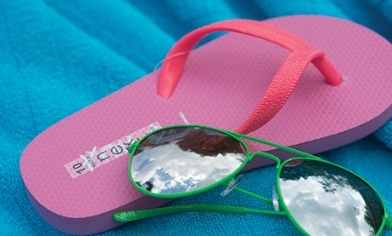
Travel money tips
Travelling abroad? These tips will help you get sorted with your foreign currency and find the best travel money rates.

How to avoid holiday scams
We all look forward to our holidays. Unfortunately, though, more and more people are being affected by holiday fraud and scams. Read our guide to help avoid being left ...

Free yourself from the hassle of cash at festivals
One of the joys of summer are the many music festivals playing across the globe. If you’re hitting the festival circuit overseas, managing your money can be a headache.

Savvy holiday spending with the Post Office travel app
Travel smarter with the Post Office travel app. Paired with a Travel Money Card, it’s your ultimate holiday money manager – and more.

Prepaid currency cards and how to use them
Prepaid currency cards are a secure way to make purchases on trips abroad. They can be a handy alternative to paying with cash and debit or credit cards.
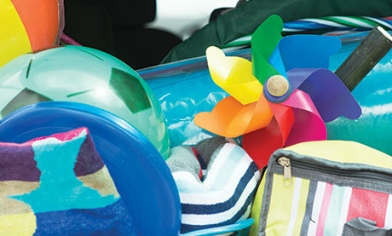
Avoid dynamic currency conversion
To avoid currency conversion fees abroad, always choose ‘local currency’ whether you’re withdrawing cash from an international ATM or spending on a prepaid travel money ...
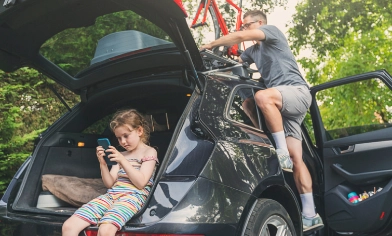
Motoring on the Continent Report
If you’re driving in Europe this year, Andorra’s your best bet for the cheapest fuel. That’s according to our latest report on fuel prices in the continent’s holiday ...

4 travel money scams and watchouts: keep your holiday funds safe
Going on holiday is an exciting time for families. To make sure it stays fun, it's crucial to be aware of the tricks and traps tourists can fall foul of.

Choosing the right card for spending abroad
Credit, debit or prepaid travel cards? Using the right card when you’re abroad could save you money and help your holiday funds go even further.

Post Office Travel Money Ski Report 2025
Discover the best value European ski resorts for adults and families of four.

Guide to tipping abroad
Knowing how much to tip in a café, restaurant, taxi or for another service can be difficult even before you add in the complication of how it works in other countries. ...

Family Holiday Report 2024
Looking to enjoy the sunshine without breaking the bank? New research from Post Office highlights the best family-friendly destinations that will help make your money go ...

Christmas Markets Report 2024
Planning a short trip to get into the Christmas spirit? The Post Office Christmas Markets Report shows where you can get the best value for your money.
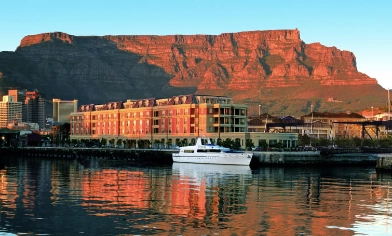
Holiday Money Report 2024
Long-haul destinations offer the best value for UK holidaymakers this year, with the power of the pound set to pack quite a punch.

Holiday Spending Report
From European hotspots to far-flung destinations, UK travellers are making overseas holidays a top priority this summer. But the latest Post Office Travel Money Spending ...
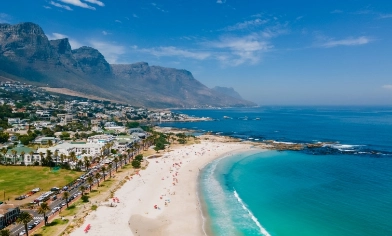
Long Haul Holiday Report 2024
Cape Town, South Africa, has regained its position as the best-value long haul destination for the first time in six years, according to the latest Long Haul Holiday ...

City Costs Barometer: the best value city breaks
Eastern Europe leads the way for the best value city breaks this year. And Lithuania’s capital, Vilnius, has emerged top of the pack.
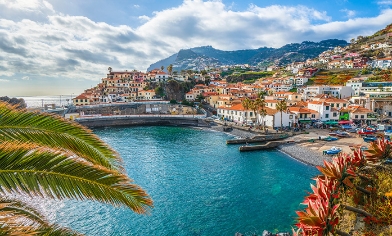
Autumn sunshine report – which islands offer best value for tourists?
Post Office Travel Money unveils the first Islands in the Sun Holiday Barometer of destinations exempt from UK quarantine.
Post Office Travel Money Card is an electronic money product issued by First Rate Exchange Services Ltd pursuant to license by Mastercard International. First Rate Exchange Services Ltd, a company registered in England and Wales with number 4287490 whose registered office is Great West House, Great West Road, Brentford, TW8 9DF, (Financial Services Register No. 900412). Mastercard and the circles design are registered trademarks of Mastercard International Incorporated.